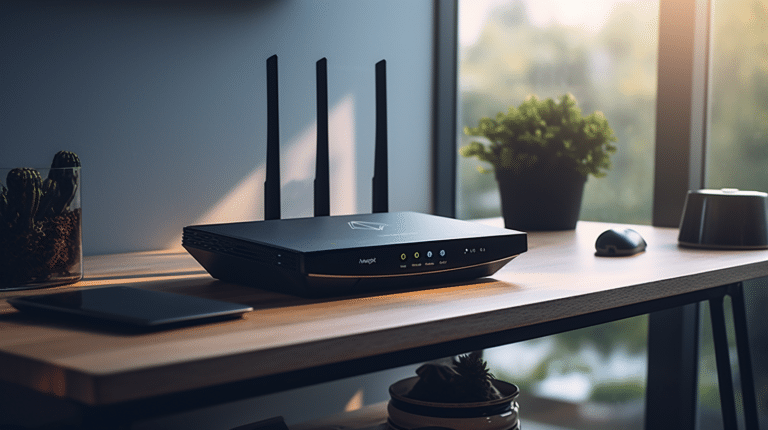OpenVPN is a widely used and popular VPN protocol that provides secure, private connections for internet users across various platforms and devices. As a prominent choice among commercial VPN services, users often find themselves wondering how exactly OpenVPN works, and more importantly, if it is truly safe to use.
Understanding the benefits and potential pitfalls of using OpenVPN is an essential part of making an informed decision about internet security. By delving into the functionality of the protocol, its performance, compatibility with various devices, and comparing it to other available VPN protocols, this article seeks to answer the question—Is OpenVPN safe?
Key Takeaways
- OpenVPN is a popular and trusted VPN protocol that offers strong security and privacy features.
- Performance, compatibility with devices, and customization options contribute to OpenVPN’s reliability.
- It is essential to compare OpenVPN with other VPN protocols for a well-rounded understanding of its safety and efficiency.
Understanding OpenVPN
OpenVPN is a popular and widely-used open-source VPN protocol that offers high security and performance for internet users. As an open-source protocol, its code is freely available for inspection and contribution by the community, which helps in maintaining security and fixing vulnerabilities.
This versatile protocol has garnered the trust of users and VPN providers due to its secure nature and ability to work across multiple platforms. OpenVPN is compatible with major operating systems like Windows, Linux, Mac, iOS, and Android. This means that users of various devices can benefit from this protocol’s high level of security and compatibility.
While OpenVPN is known to be a safe option, it is important to keep in mind that its level of security is highly dependent on how it has been configured by the server administrator. There are different ways to set up OpenVPN, and using the less secure configuration options may compromise its protection. For instance, using static keys instead of a public key infrastructure (PKI) can reduce the overall security of the protocol.
In conclusion, OpenVPN remains a secure and reliable VPN protocol choice, thanks to its open-source nature and compatibility with various platforms. However, the safety it provides ultimately relies on the settings used by the server administrator.
Is OpenVPN Secure
OpenVPN is considered a highly secure protocol, primarily due to its use of strong encryption mechanisms and open-source nature. Users can trust that their data and privacy are protected, as OpenVPN relies on OpenSSL for encryption, which is a widely recognized and robust security library.
Thanks to its implementation of SSL/TLS (Secure Sockets Layer/Transport Layer Security), OpenVPN ensures secure data transmission between the client and server. This goes hand-in-hand with the use of 256-bit encryption, providing a high level of security for the data being transmitted. Adding to the mix is RSA for key exchange and authentication, further fortifying the security features offered by OpenVPN.
A significant advantage of OpenVPN lies in its open-source nature. This transparency allows security experts and users to examine the code for vulnerabilities, contributing to continuous improvements and maintaining high security standards. When choosing a VPN provider, ensure that they support the OpenVPN protocol for a reliable and secure connection.
Being confident and knowledgeable about OpenVPN’s security features enables users to make informed decisions, ensuring a safe and protected online experience. Its strong encryption, SSL/TLS implementation, use of OpenSSL, 256-bit encryption, RSA key exchange and authentication, and open-source nature all contribute to a neutral and clear understanding of OpenVPN’s overall safety.
Protocol and Performance
When discussing the safety and efficacy of OpenVPN, it’s essential to understand its protocol and performance aspects. OpenVPN uses a custom security protocol that leverages SSL/TLS for key exchange, which ensures a high level of security and performs quite well.
The OpenVPN protocol supports both Transmission Control Protocol (TCP) and User Datagram Protocol (UDP) as transport layers. TCP is known for its reliability, ensuring packet delivery by resending data if not acknowledged by the recipient. While this increases stability and accuracy, it can also reduce speed. On the other hand, UDP is faster but less reliable because it doesn’t resend lost packets. For better speeds with OpenVPN, it’s generally advised to use UDP whenever possible.
OpenVPN’s greatness lies in its balance between speed and security. It is a versatile, stable, and transparent VPN protocol, making it widely trusted among VPN users. The open-source nature of OpenVPN allows it to be independently audited and continuously improved to ensure robustness and reliability.
However, it’s essential to note that the actual security and performance of OpenVPN depend on how the server administrator configures it. Using static keys, for example, is less secure than employing public key infrastructure (PKI). Thus, choosing a reliable VPN provider with a robust OpenVPN implementation is crucial to ensuring the desired level of safety and performance.
In terms of performance compared to other VPN protocols, OpenVPN generally fares well, but it may not always be the fastest option. For instance, WireGuard is often mentioned as a more speedy alternative while still offering top-notch security. However, it’s crucial to weigh these factors according to specific user requirements and preferences, as both speed and security needs can vary significantly among users.
OpenVPN and Privacy
OpenVPN is a popular VPN protocol used by many VPN providers to ensure a secure and private browsing experience. It works by encrypting your internet traffic through a secure VPN tunnel, protecting your private data from potential surveillance or hacking attempts. The protocol is considered to be highly robust when it comes to privacy, with features such as no-logs policy and strong encryption methods.
However, the privacy and security of OpenVPN largely depends on how the VPN server administrator has configured the setup. For instance, using static keys instead of public key infrastructure (PKI) may render the connection less secure. Therefore, it is crucial to choose a VPN provider that implements OpenVPN with optimal security measures in place.
When properly configured, OpenVPN offers a high level of privacy for its users. It supports strong encryption standards such as AES-256, which is considered nearly unbreakable. This ensures that your data remains protected even if an attacker manages to intercept the connection. Additionally, OpenVPN offers features like perfect forward secrecy, ensuring that previous sessions cannot be decrypted even if a specific key is compromised.
In conclusion, OpenVPN is a reliable choice for those who value privacy and security while surfing the internet. By opting for a trustworthy VPN provider that implements OpenVPN with robust security configurations, you can enjoy a secure browsing experience, free from the worries of data breaches or privacy invasions.
Configuring OpenVPN
OpenVPN is a widely used and reputable VPN protocol, but its security depends on proper configuration. When setting up an OpenVPN server, it’s essential to follow best practices and avoid common pitfalls to ensure your data remains safe and secure.
One of the first steps in configuring OpenVPN is to set up a Public Key Infrastructure (PKI). This provides more security than using static keys, which are less secure and susceptible to attacks. To create and manage the necessary keys and certificates, you can use a tool like EasyRSA, which assists in generating the required files for both clients and servers.
When choosing a VPN client, it is best to opt for one that supports OpenVPN natively or via a compatible GUI. This simplifies the configuration process and ensures optimal performance. Popular choices include the official OpenVPN GUI on Windows, Tunnelblick on macOS, and OpenVPN for Android.
To strengthen the security of your OpenVPN setup, it’s crucial to configure essential security settings like encryption, authentication, and data integrity. Choosing strong and up-to-date encryption algorithms, such as AES-256, is recommended. Additionally, setting up TLS authentication can further enhance security by mitigating denial-of-service attacks.
OpenVPN servers can be configured to operate behind firewalls, ensuring that your network remains protected from external threats. However, doing so requires configuring port forwarding on your firewall to allow the OpenVPN server to communicate with clients. For increased security, it is advised to use non-standard port numbers and, when possible, configure the server to run as a non-privileged user.
In conclusion, OpenVPN can be a safe choice when properly configured. To maintain a secure environment, it’s recommended to follow best practices in setting up your OpenVPN server, using strong encryption methods, and keeping your configuration up-to-date.
Compatibility with Platforms and Devices
OpenVPN is a versatile and popular VPN protocol that offers compatibility with a wide range of platforms and devices. Its strong security features and flexibility make it a top choice for users across various operating systems.
- Windows: OpenVPN is fully supported on the Windows platform, from Windows XP to the latest Windows 10. Users can easily set it up using the official OpenVPN client or through various third-party clients such as Viscosity.
- Mac: Mac users can also enjoy the benefits of OpenVPN by utilizing the official OpenVPN client for macOS or other third-party clients such as Tunnelblick. Newer versions of macOS have built-in support for OpenVPN connections.
- Linux: OpenVPN is natively supported on Linux systems, and many popular distributions, including Ubuntu, Fedora, and Debian, provide packages for OpenVPN in their repositories. Alternatively, users can also compile OpenVPN from source if needed.
- iOS: OpenVPN is available for iOS devices, such as iPhones and iPads, through the use of the official OpenVPN Connect app, which can be downloaded from the App Store.
- Android: Android users can take advantage of OpenVPN support by downloading the official OpenVPN Connect app from the Google Play Store or using third-party clients that support OpenVPN.
With cross-platform compatibility being one of its strengths, OpenVPN allows users to utilize VPN services safely and easily on most devices and operating systems. Alongside its open-source nature, the protocol ensures users can access VPN services without encountering major compatibility issues, providing a seamless and secure internet experience.
Comparison with Other VPN Protocols
OpenVPN is a popular and widely used VPN protocol, but it’s not the only option available. Let’s briefly compare OpenVPN with other major VPN protocols: WireGuard, IKEv2, L2TP/IPsec, and SSTP.
- WireGuard: is a relatively newer protocol that has been gaining popularity due to its strong encryption, simplicity, and fast performance. It uses modern cryptographic primitives and is designed with a minimal codebase, making it easier to maintain and audit for security vulnerabilities. One advantage of WireGuard over OpenVPN is that it can offer better connection speeds while maintaining strong security. However, WireGuard is still under development and may not be as battle-tested as OpenVPN in some situations.
- IKEv2 (Internet Key Exchange version 2): is another VPN protocol that is known for its ability to quickly establish a connection, making it a good option for mobile devices that switch between networks frequently. It offers strong encryption like OpenVPN and is often used in combination with IPsec to provide security. However, since IKEv2 is not open-source, it might not be as transparent and customizable as OpenVPN.
- L2TP/IPsec (Layer 2 Tunneling Protocol with Internet Protocol Security): is a combination of two protocols that provides encryption and data integrity. It is often used as a default VPN protocol on many devices and operating systems. While L2TP/IPsec provides decent security, it can be slower than OpenVPN due to the double encapsulation of data and may not bypass restrictive firewalls as effectively as OpenVPN or WireGuard.
- SSTP (Secure Socket Tunneling Protocol): is a Microsoft-developed VPN protocol that uses SSL/TLS for key exchange and encryption. It is natively integrated into the Windows operating system and can bypass most firewalls due to its use of the same port as HTTPS traffic. Although SSTP offers strong encryption, its proprietary nature and limited platform support may put it at a disadvantage when compared to open-source alternatives like OpenVPN and WireGuard.
In conclusion, each VPN protocol has its own strengths and weaknesses depending on the specific use case and requirements. OpenVPN, being an open-source protocol with strong encryption and widespread compatibility, remains a popular and safe choice for many users. However, alternatives like WireGuard and IKEv2 may offer better performance or flexibility depending on the situation. Ultimately, the choice of protocol should be based on the user’s needs and preferences.
OpenVPN for Different Uses
OpenVPN is a highly regarded VPN protocol that provides both security and flexibility for a variety of applications. In this section, we’ll take a look at how OpenVPN can be successfully used for streaming, gaming, and torrenting.
- Streaming: OpenVPN is a popular choice for streaming services due to its ability to bypass geo-restrictions and provide a secure, encrypted connection. This enables users to access content from other countries without the risk of being detected by ISPs or streaming platforms. Moreover, OpenVPN supports a wide range of devices, ensuring a smooth streaming experience for users.
- Gaming: For gamers, the primary concern when using a VPN is the potential for increased latency or slower connection speeds. OpenVPN is adaptable and can be fine-tuned to prioritize latency, making it a solid choice for gaming. By using the UDP (User Datagram Protocol) instead of TCP (Transmission Control Protocol), OpenVPN can reduce latency and maintain fast connection speeds while offering robust security features that protect your gaming sessions from potential threats.
- Torrenting: Another popular use for OpenVPN is to safely and anonymously download and share files through torrenting. Its strong encryption and authentication features help to secure your data and protect your privacy. Since VPN providers often offer a connection to their OpenVPN servers, torrenting activities can be easily concealed from ISPs, who may otherwise throttle your speeds or take legal action if copyright infringement is detected.
In summary, OpenVPN is a versatile and secure protocol that caters to the needs of various users, including those engaging in streaming, gaming, and torrenting. Its customization options, coupled with strong encryption and wide platform support, make it a go-to choice for many looking for a reliable and secure VPN experience.
Reliability of OpenVPN
OpenVPN is a popular VPN encryption protocol known for its security and versatility. As an open-source software, it benefits from a large community of developers constantly working to improve its reliability and performance. The active support and updates provided by the developers ensure that the protocol remains up-to-date and able to handle ever-evolving online threats.
One of the key factors contributing to OpenVPN’s reliability is its use of the OpenSSL library, which offers a broad range of encryption algorithms and strong security (source). This allows users to customize their security settings and ensure optimal protection against various online threats.
In addition, OpenVPN offers both client and server applications for various operating systems, including Windows, macOS, Linux, Android, and iOS. This broad compatibility makes it easier for users to set up and maintain secure connections across different devices, increasing overall reliability.
Furthermore, many VPN providers choose OpenVPN as their preferred protocol due to its ability to maintain stable connections even in difficult network environments, such as over public Wi-Fi or in countries with restricted internet access (source). Speeds and performance may vary depending on the specific configuration and server location, but OpenVPN is generally known for providing a good balance between security and speed.
Despite its strengths, it is crucial for users to stay informed about any potential vulnerabilities within the OpenVPN protocol and apply updates as they become available. As with all software, maintaining up-to-date security features and patches is essential to ensure long-term reliability and protection.
Overall, OpenVPN’s strong security, compatibility, and adaptability, combined with ongoing support and updates, contribute to its status as a reliable and trusted VPN protocol for users who prioritize online privacy and security.
Final Verdict
OpenVPN has proven to be a safe choice for individuals and organizations looking for security, privacy, and fast connections. It offers robust encryption, ensuring that sensitive data remains private and protected from unauthorized access.
Being an open-source protocol, OpenVPN benefits from a large community of experts who constantly scrutinize and improve the security features. This collaborative nature helps maintain protection against potential security flaws and breaches while keeping the protocol up-to-date with the latest security advancements.
In terms of performance, OpenVPN excels at providing stable and fast connections, minimizing latency and bandwidth loss. This ensures that users can confidently use the protocol for tasks requiring high-speed internet, such as streaming or secure file transfers.
Moreover, the versatility and compatibility of OpenVPN with various platforms and devices make it an ideal option for those who require secure and private connections across different operating systems and environments.
To sum up, OpenVPN stands out as a reliable choice for users seeking a secure, private, and fast VPN protocol. Its strong encryption, open-source nature, and solid performance contribute to the confidence of users who rely on it to safeguard their digital identities and data.
Frequently Asked Questions
How does OpenVPN compare to other VPN protocols?
OpenVPN is a popular and widely-used VPN protocol known for its strong security and flexibility. It offers several advantages over other VPN protocols, such as encryption using OpenSSL and support for a variety of platforms source. It is often a preferred choice for users who prioritize privacy and security.
Which VPNs use OpenVPN as their protocol?
Many VPN services incorporate OpenVPN as one of their protocol options due to its reliability and security features. Some of these VPNs include CyberGhost, NordVPN, ExpressVPN, and Private Internet Access, among others.
What are the security features of OpenVPN?
OpenVPN has numerous security features that make it a preferred option for users who prioritize privacy. It uses OpenSSL for encryption and supports the use of various security algorithms, including AES, Blowfish, and others source. Additionally, OpenVPN supports Perfect Forward Secrecy, which ensures that even if encryption keys are compromised, past sessions remain secure.
Is OpenVPN suitable for use on mobile devices?
OpenVPN is compatible with mobile devices, including Android and iOS. Users can opt for dedicated OpenVPN apps or third-party VPN apps that support OpenVPN protocol source. This ensures that mobile users can enjoy the same level of security and privacy as desktop users.
How does OpenVPN perform compared to WireGuard?
OpenVPN is known for its stability, security, and compatibility, while WireGuard is a newer VPN protocol that is gaining attention for its performance and simplicity. WireGuard uses fewer resources, thereby offering faster speeds and better performance. However, OpenVPN remains a popular choice for those who prioritize strong security and extensive platform support source.
Do OpenVPN-based services maintain user logs?
The logging policy of OpenVPN-based services depends on the individual VPN provider. Some providers follow a strict no-log policy, ensuring that user activity is not recorded. Others may keep minimal logs for troubleshooting or other purposes. It is crucial to research and choose a VPN provider that adheres to a robust privacy policy to ensure your data remains secure.






